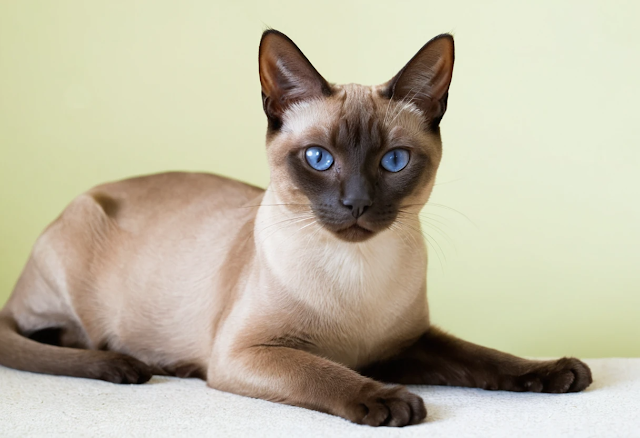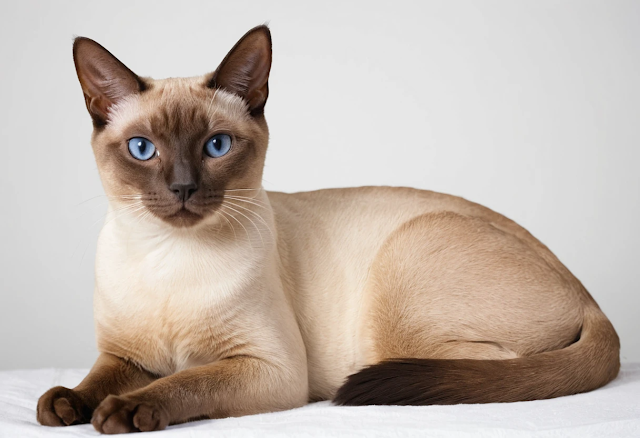Caring for Your Tonkinese Companion: A Complete Guide to Feline Wellness
Caring for a Tonkinese cat involves understanding their unique needs and characteristics. This guide aims to provide comprehensive information on how to ensure the health and happiness of your Tonkinese companion. From nutrition and grooming to health care and behavioral insights, this article covers all aspects of feline wellness specific to this affectionate and playful breed.
Understanding the Tonkinese Breed
The Tonkinese cat is a delightful blend of the Siamese and Burmese breeds, known for their striking appearance and engaging personality. They typically have a medium-sized body, with a muscular build and a short, sleek coat that comes in various colors and patterns. Their expressive eyes, which can be blue, green, or gold, add to their charm.
Tonkinese cats are known for their social nature and intelligence. They thrive on interaction with their human companions and often enjoy being involved in family activities. Understanding these traits is crucial for providing the right environment and care for your Tonkinese.
Nutrition: Feeding Your Tonkinese
Choosing the Right Diet
A balanced diet is essential for your Tonkinese's health. Cats are obligate carnivores, meaning they require a diet high in animal protein. Look for high-quality commercial cat food that lists meat as the first ingredient. You can choose between dry kibble, wet food, or a combination of both, depending on your cat's preferences and dietary needs.
Portion Control
Tonkinese cats are known for their playful and active nature, which can sometimes lead to overeating. It's important to monitor their food intake to prevent obesity. Consult with your veterinarian to determine the appropriate portion sizes based on your cat's age, weight, and activity level.
Special Dietary Needs
As your Tonkinese ages, their dietary needs may change. Senior cats may require a diet lower in calories but higher in fiber to maintain a healthy weight. Additionally, if your cat has any health issues, such as kidney disease or diabetes, your veterinarian may recommend a specialized diet.
Grooming Your Tonkinese
Coat Care
Tonkinese cats have a short, fine coat that requires minimal grooming. However, regular brushing can help reduce shedding and prevent hairballs. Aim to brush your cat at least once a week, using a soft-bristle brush or grooming glove. This not only keeps their coat healthy but also provides an opportunity for bonding.
Bathing
While Tonkinese cats are generally good at grooming themselves, occasional baths may be necessary, especially if they get into something messy. Use a cat-specific shampoo and ensure that you rinse thoroughly to avoid skin irritation. Bathing should be done sparingly, as excessive washing can strip the coat of its natural oils.
Nail Trimming and Ear Care
Regular nail trimming is essential to prevent overgrowth and potential injury. Aim to trim your cat's nails every few weeks. Additionally, check their ears regularly for dirt or wax buildup. If you notice any excessive debris, gently clean their ears with a veterinarian-recommended solution.
Health Care: Regular Veterinary Visits
Routine Check-Ups
Regular veterinary visits are crucial for maintaining your Tonkinese's health. Schedule annual check-ups to monitor their overall well-being and catch any potential health issues early. Your veterinarian will perform a physical examination, vaccinations, and may recommend blood tests to assess organ function.
Vaccinations
Vaccinations are an essential part of your cat's health care routine. Ensure that your Tonkinese is up-to-date on core vaccinations, including rabies, feline distemper, and feline herpesvirus. Discuss with your veterinarian any additional vaccines that may be recommended based on your cat's lifestyle and risk factors.
Parasite Prevention
Tonkinese cats are susceptible to parasites such as fleas, ticks, and worms. Implement a parasite prevention plan that includes regular treatments for fleas and ticks, as well as deworming as needed. Consult your veterinarian for the best options for your cat.
Behavioral Insights: Understanding Your Tonkinese
Socialization
Tonkinese cats are known for their sociable and affectionate nature. They thrive on interaction and often form strong bonds with their human companions. Encourage socialization by spending quality time with your cat, engaging in play, and providing opportunities for mental stimulation.
Play and Enrichment
Providing a stimulating environment is essential for your Tonkinese's mental and physical well-being. Invest in interactive toys, scratching posts, and climbing structures to keep your cat entertained. Regular playtime not only helps burn off excess energy but also strengthens your bond.
Litter Box Training
Tonkinese cats are generally easy to litter box train. Ensure that you provide a clean, accessible litter box and scoop it daily. If your cat is reluctant to use the litter box, consider factors such as the type of litter, box location, and cleanliness.
Creating a Safe Environment
Indoor vs. Outdoor Living
While some cat owners may consider allowing their Tonkinese to roam outdoors, it's generally safer to keep them indoors. Outdoor cats face risks such as traffic, predators, and disease. If you want to provide outdoor experiences, consider building a catio or using a harness and leash for supervised outings.
Toxic Plants and Foods
Be aware of common household plants and foods that are toxic to cats. Avoid keeping plants such as lilies, poinsettias, and philodendrons in your home. Additionally, keep human foods like chocolate, onions, and garlic out of reach, as they can be harmful to your Tonkinese.
Aging and Senior Care
Recognizing the Signs of Aging
As your Tonkinese ages, you may notice changes in behavior, activity level, and health. Common signs of aging include decreased energy, changes in appetite, and difficulty grooming. Regular veterinary check-ups become even more critical during this stage to monitor for age-related health issues.
Senior Nutrition
Older cats may require a diet formulated for senior cats, which typically contains lower calories and higher fiber. Consult your veterinarian for recommendations on the best diet for your aging Tonkinese.
Comfort and Care
Ensure that your senior Tonkinese has a comfortable and quiet space to rest. Provide soft bedding and easy access to food, water, and litter boxes. Regularly check for any signs of discomfort or pain, and consult your veterinarian if you notice any concerning changes.
Caring for your Tonkinese companion involves understanding their unique needs and providing a nurturing environment. By focusing on nutrition, grooming, health care, and behavioral enrichment, you can ensure that your Tonkinese lives a happy and healthy life. Regular veterinary visits and attention to their changing needs as they age will further enhance their well-being. With love and care, your Tonkinese will thrive as a cherished member of your family.
.jpg)










